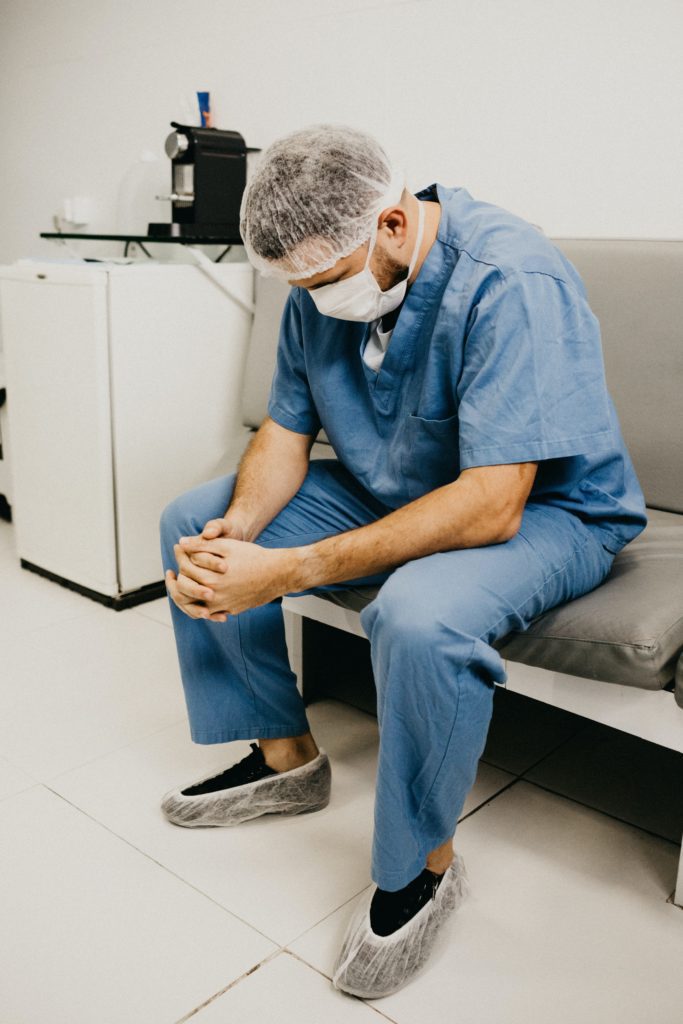Flexible scheduling has many benefits to all organizations, especially those in the healthcare industry. Anyone working in healthcare knows how much of a uniquely challenging field it is. The work is demanding and can cause stress levels to rise. In spite of this, for many healthcare professionals, the difficult parts of the job are offset by the fact that their work is valuable to those in need.

According to Business Wire, the global healthcare market has reached an annual growth rate of 7.3% and is now valued at 178.5 billion in 2022. Despite its rise in growth, the COVID-19 pandemic placed an enormous strain on the global healthcare sector’s workforce, infrastructure, and supply chain. This sudden increase in demand has led to shortages of skilled human resources, which has had a negative impact on the productivity of healthcare services. In its time of need, the healthcare industry should look to effective employee scheduling solutions such as flexible scheduling as a long-term solution.
What is flexible scheduling?
When discussing the benefits that employees crave most, flexible scheduling is at the top of many wishlists. If managed correctly, this implementation can be just as beneficial to employers as it is for employees.
Flexible scheduling is a highly beneficial concept for organizations that operate outside of the traditional nine to five work schedule. Management determines a work schedule based on demand and then allows employees to select the shifts they wish to work.
Organizations within the healthcare industry utilize flexible scheduling as they rely on employees to work varied shift patterns. Due to the heavy strain on healthcare employees’ wellbeing, now is the time to facilitate a better work-life balance!
How can Flexible Scheduling benefit your Healthcare Organization?
Decrease in burnout cases
Approximately one in three physicians are currently experiencing burnout at any given time. It’s likely that this doesn’t just interfere with their own wellbeing, but also the quality of care that they deliver.

Eradicating burnout has been the healthcare industry’s pathway to restoring maximum productivity while reducing employee turnover and absenteeism. Allowing employees to choose when they work gives them more personal freedom, allowing for improved job satisfaction. As long as an organization’s employee scheduling can deal with last-minute changes, it will meet the demand for healthcare services. A happy and healthy workforce will be more prepared to provide outstanding healthcare services. A win-win for managers and employees alike!
Better work-life balance
The importance of recognizing the benefits of a healthy work-life balance has never been more necessary. The healthcare industry has been put under an enormous amount of pressure since the pandemic. This has caused 20% to 30% of U.S. frontline healthcare workers to reconsider their profession due to the strain on their lives. Throughout a period of being understaffed and experiencing a shortage of resources, healthcare workers have been expected to optimize their performance to cope with demand. Unsurprisingly, this has been too difficult to handle for some. Taken from an article by McKinsey & Company, the following statement gives clarity to why this may be happening:
“Healthcare systems are managing short-term, pandemic-era workforce challenges while sowing seeds for longer-term changes that enhance workforce and patient experience.”

Workforces of healthcare organizations have been preoccupied and overloaded with the additional challenges of the pandemic. With expectancies ever-changing, the demand is greater than ever. Flexible scheduling may relieve employees from excessive duties, and bring a more sustainable method of productivity to the workforce.
The traditional scheduling methods only allowed for management to have complete control over the schedule. However, integrating a flexible approach to scheduling will give employees the control over their schedules that they deserve. The tireless efforts healthcare professionals exert requires reward.
Attracting and retaining talent
Using a flexible schedule can be a powerful recruitment tool when searching for talent within a competitive industry. Flexible scheduling shows the employer cares about the well-being of their workforce. This is an attractive outlook to any prospective employee. Whether this is remote work, paid time off, or compressed workweeks; it gives an employee more control. An employee who has more autonomy over their work-life balance will be more loyal and engaged. A combination of a talented and invested workforce will ensure the healthcare industry continues to go in the right direction.
How can Celayix help?
Scheduling software, such as Celayix, allows you to create open shifts with the click of a button. This service allows you to model your schedule based on your requirements and is easy to make changes if necessary. Should there be any concerns over the schedule, in-app notifications provide an easy method of communication between manager and employee. The employee will now be provided with the option to pick the shifts that suit a healthier work-life balance. The additional freedom that this provides will improve the employee’s motivation and morale towards the job.
As we seek to reach some sort of normality, it’s important that healthcare organizations are willing to invest in order to progress. The healthcare industry has been forced to rapidly adapt and adopt virtual health solutions and other digital innovations. Healthcare organizations should look to utilize the knowledge they’ve learned by implementing scheduling software to support flexible scheduling. This will allow managers to create open shifts for employees, who can choose the ones that give them a healthier work-life balance. Management can also utilize the automated tools within this software to create simple shift swaps in the event of emergencies.
The freedom that flexible scheduling brings will help to attract and retain skillful workers for healthcare organizations. By giving flexibility, healthcare organizations will not only benefit from a happier workforce but also better healthcare services. The bottom line is that if healthcare organizations give their workers a better lifestyle, they will provide better care.




